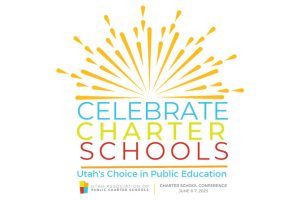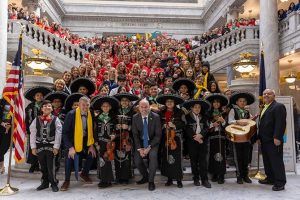At Providence Hall, we are committed to utilizing prevention strategies and interventions to support our students’ growing minds throughout their K–12 journey. Through collaboration and research, we have put into place innovative and successful supports to address our students’ mental health needs.
Overstimulated. Overtired. Overwhelmed. Big feelings and sometimes even bigger behaviors are experienced by students, especially in elementary school. Without the vocabulary or skills to express triggers or frustrations, oftentimes students shut down, tantrum, or express avoidance behaviors. These behaviors limit academic engagement, distract peers, and often lead to lower self-esteem. Through collaboration, our staff designed a sensory-friendly space to support students’ needs. This dimly lit magical space, filled with soothing sounds and sensory enriching tools, we call Patriot Park and is staffed by an interdisciplinary team of counselors and administrators. They are hard at work collecting data including student self-report ratings upon entering and exiting the space, measuring the frequency of student visits, and reporting strategies utilized. This data is used to enhance tier-one coaching in the classroom and to guide our intervention teams.
Navigating the social world, both digitally and in real life, can present challenges. With the influence of social media and communication through technology (texting, group chats) students get mixed messages and struggle with interpersonal relationships. The lines between reality and the digital world get blurred. The distinction between virtual behavior and in-person social norms is not always apparent to developing brains. At the junior high, to help facilitate healthy social relationships, there is a “no cell phones” policy during class time. We expect students to be present and mindfully aware of their surroundings while learning, whether they are participating in an engaging debate in a core class or working on a hands-on project in an elective class like Stop Motion Animation. With an uptick in social challenges related to the ever-growing digital world, the team at the junior high has implemented social mediation opportunities for students in conflict. Disjointed communication or involvement of other peers (group chats) muddies relationships. Through staff-facilitated conversation and face-to-face dialogue, students have been successful in identifying conflicts and generating appropriate resolutions.
At the high school level, students are actively balancing academic achievement with social activities. With numerous opportunities at their fingertips, including college credit courses, performing arts, competitive sports, and leadership roles, students have the chance to find passion and enjoyment throughout our hallways. While we encourage students to build their critical thinking and problem-solving skills, we are also vested in providing support to develop their social-emotional wellness skills. Through collaboration with the teachers, mental health team, and administrators the high school is developing small groups as a tiered intervention to help students build these skills. The subject matter ranges from executive functioning to perfectionism. The small groups will pair staff instruction with workbook activities outlining tools and strategies. Through small group interaction, students have the opportunity to build social relationships with other students and engage in meaningful peer feedback.
Our charter demonstrates mental health is a priority based on the robust staffing of service providers. Each campus staffs counselors on-site as well as access to school workers, school psychologists, and an occupational therapist. The elementary school also has a social skills instructor. Mental health is an indicator of social-emotional wellness, and it extends to the capacity for engagement in meaningful educational experiences. In support of “whole child” development, we not only track student academic progress, we also dedicate time to focus on student monitoring social-emotional wellness. Across the three campuses, surveys are given biannually to measure student social behaviors and emotional wellness. With this information, we can generate student-specific support through tiers two and three as well as evaluate our tier one approach to building relationships with our students.
Our future is bright at Providence Hall because of our incredible staff who are dedicated to our Patriots. To support our staff members, we offer Employee Assistance Program opportunities through Blomquist Hale. This service offers online workshops, counseling resources, and support groups.
We look forward to future growth through continuing education and collaboration with our Charter School Community to best serve our Patriots and their families.
Maura Yellen Biekert is a Nationally Certified School Psychologist. She is in her fifth year working at Providence Hall. Maura received her degrees from the University of Connecticut and the University of Hartford. Her specialty is child clinical counseling. In addition to her years in the school setting, she also worked with survivors of human trafficking. Outside of her career, she enjoys golfing with her husband and their dog, Bogey.







